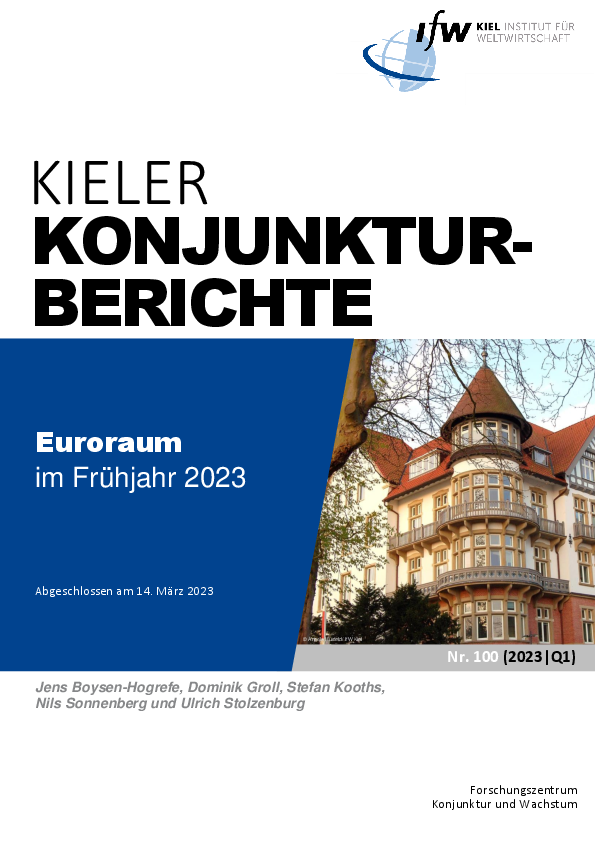Economic Outlook
Euro Area Economy Spring 2023: Energy crisis subsides, prospects brighten up
Authors
Publication Date
Key Words
Related Topics
Business Cycle
Business Cycle Euro Area
European Union & Euro
Up to the final quarter of 2022, the euro area economy proved strong enough to evade a contraction in output, despite the extremely high energy prices and the associated loss of purchasing power. After energy prices have receded to more moderate levels across the board, and with weakening headwinds from the global economy, the euro zone is expected to gradually regain grip. This is also indicated by business and consumer surveys, which now reflect somewhat more optimism than they did in the fall. In 2023 and 2024, the monetary union is likely to be characterized by stronger private consumption, though overall economic momentum is likely to remain subdued as monetary policy is tightened significantly. Overall, euro area GDP is expected to increase by 1.1 percent in 2023 and 1.6 percent in 2024. Inflation, which has been high until recently, is expected to gradually subside. Consumer prices will rise by an average of 5.5 percent in the current year. In the following year, inflation will likely moderate at 2.6 percent. Unemployment remains low.









